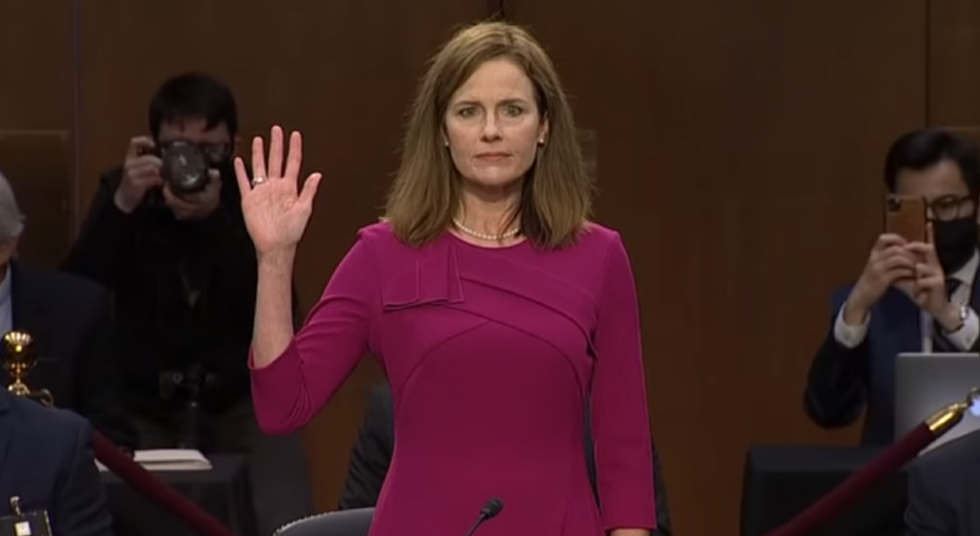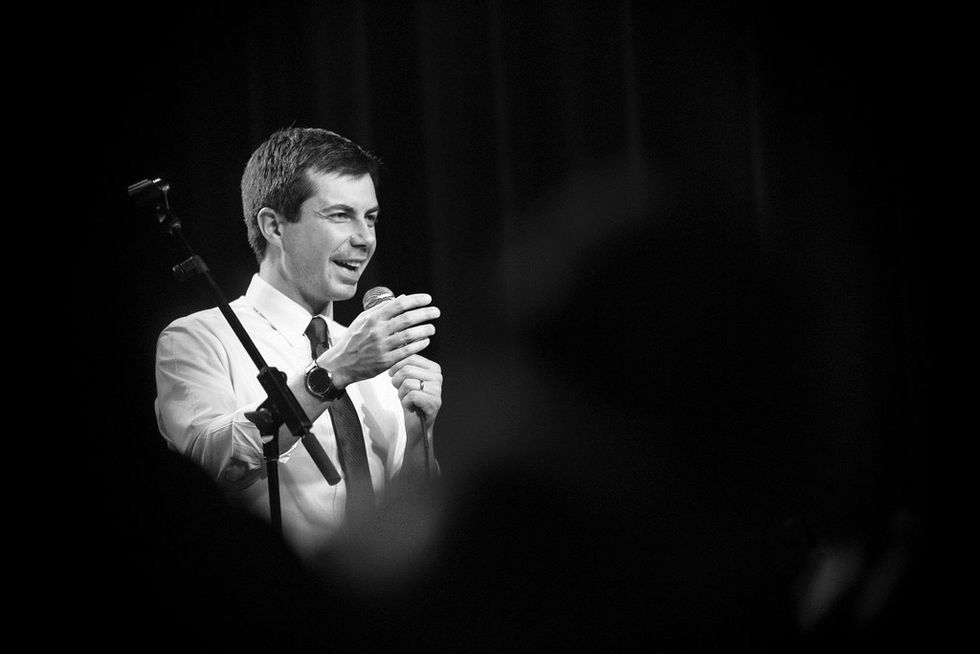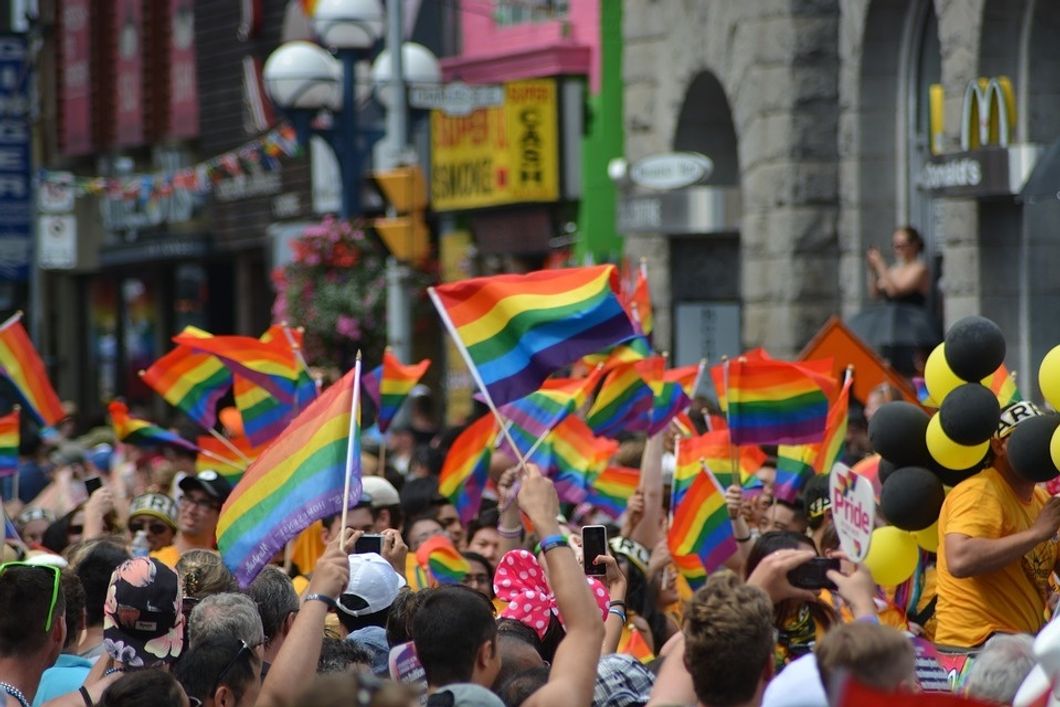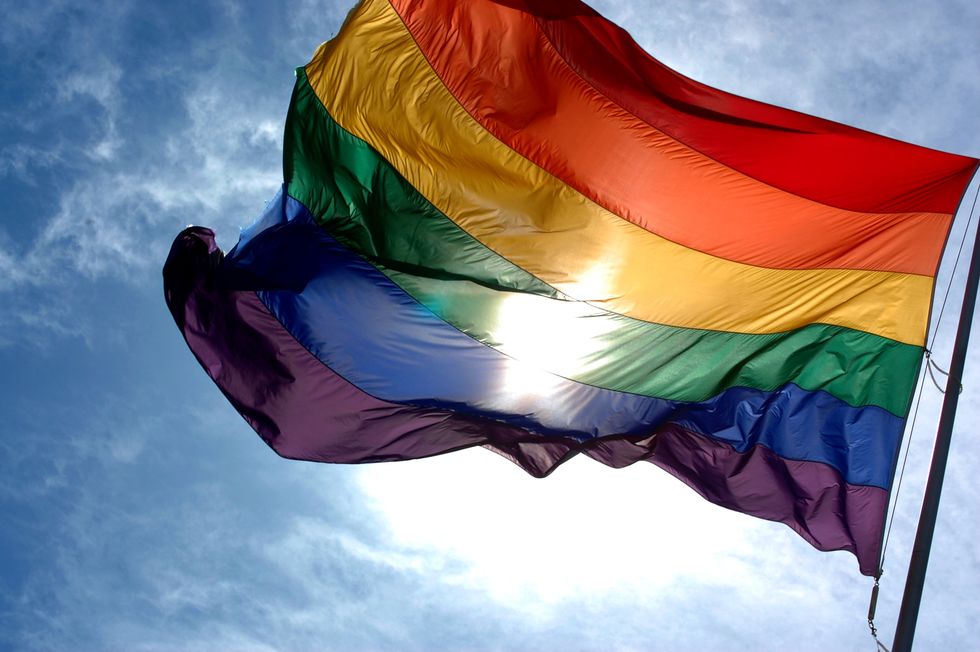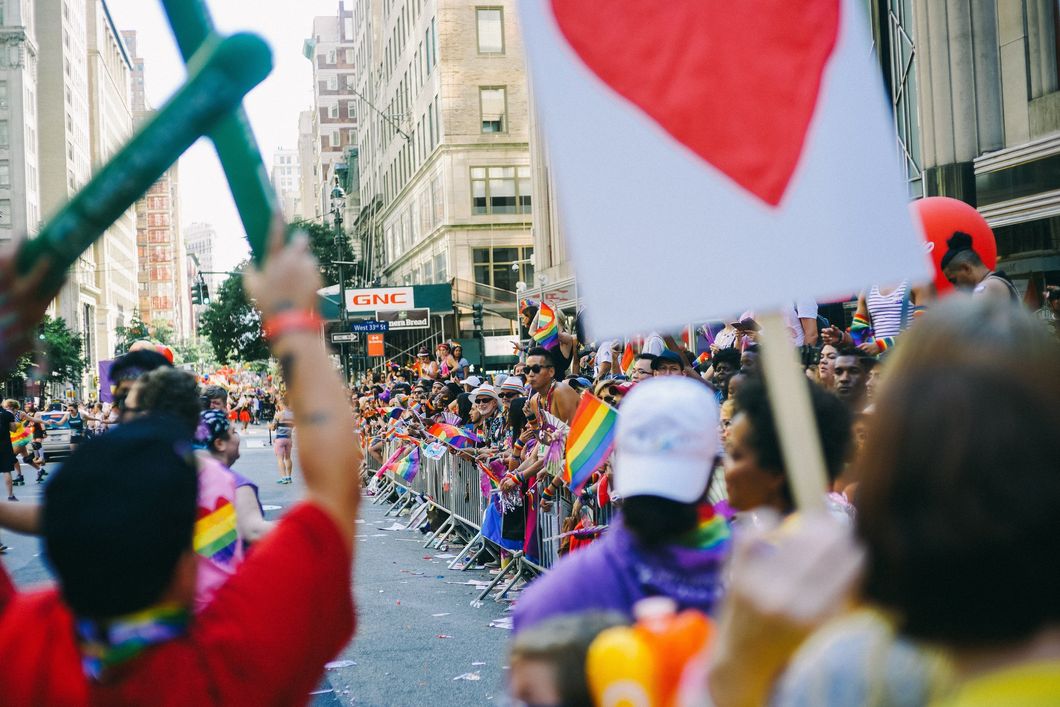Amy Coney Barrett Said Sexuality Is A Choice By Saying 'Sexual Preferences' — But It's Not
Judge Amy Coney Barrett used a term that many feel implies sexuality is a choice.
When Supreme Court Justice Ruth Bader Ginsburg passed away in September, we lost a remarkable woman who was at the forefront of progressive values. She not only stood up for women, but she supported the LGBTQ community. RBG was the first Supreme Court member to officiate a same-sex marriage ceremony. Her backing the LGBTQ community meant so much to us. It helped push us towards the progress we see today.
However, with that progress comes pushback. Much of the pushback to LGBTQ equality comes from religious extremists. While they might not call themselves extremists, their behavior says otherwise. There have been legal arguments over whether refusing to bake wedding cakes for gay couples is allowed due to religious freedom. While it has been a tremendous victory that marriage equality was mandated across the U.S. in 2015, there's a harsh reality still present.
That reality being the fact that many people in America are unhappy with the decision and want to overturn it.
Justice Clarence Thomas and Justice Samuel Alito released a statement last week which expressed what they see as religious liberty implications due to the 2015 victory. To me, their statement took a threatening tone and raised questions about the future of marriage equality.
It's quite irritating when a group can't enjoy their freedom without worrying about being suddenly persecuted once again.
Donald Trump, our country's president, appeals to these religious extremists. His desire for power and the unhealthy need to maintain it sees him bending over for them constantly. I think it's clear that this is not a man who will put the people first. He will put his own status and power first. Anyone who can help him obtain or maintain that will be prioritized. If you don't fit into that category, you will be tossed aside, even if you're one of his supporters.
It's a real shame they still don't understand that, even when it's painfully obvious.
Therefore, when Trump announced his pick to replace RBG on the Supreme Court, liberals were highly skeptical. His nominee was Judge Amy Coney Barrett, a Catholic who is a member of a group called People of Praise. Vice presidential nominee Kamala Harris claimed Barrett is a pawn by Trump to strike down the Affordable Care Act. Others on the left felt uneasy due to her religious and conservative views, believing this will affect her view on social issues.
Barrett spoke Tuesday in a marathon session before the Senate Judiciary Committee. She attempted to assure people she wasn't Trump's pawn and prove the perceptions others have of her untrue.
On one hand, she said the right things. Barrett spoke about racism and incidents caused by police brutality. She talked about how she wept with her daughter, who is Black and adopted from Haiti, over the murder of George Floyd. She said, "Racism persists in our country," while condemning white supremacy. She also said there is implicit bias in the criminal justice system.
On the other hand, she said something that didn't quite come out the right way. When asked if she would roll back protections for LGBTQ people, Barrett said she "never discriminated on the basis of sexual preference and would not discriminate on the basis of sexual preference."
It's important to read between the lines when it comes to a statement like this. Barrett says she won't discriminate because of someone's sexuality. However, one has to wonder if she will discriminate because of her religious views. Homophobic religious people will often say things like, "I don't hate you because of your sexuality, I just believe it's a sin."
This question is what led to outrage over her choice of words.
Senator Mazie Hirono scolded Barrett for using the term "preference" as opposed to "orientation." Hirono called the term "offensive and outdated" due to the fact that it implies sexuality is a choice. Barrett later apologized for using "a term that would cause any offense in the LGBTQ community."
The term "sexual preference" has been widely used by many people in the past, including those supportive of the LGBTQ community. However, there has been a change in recent years, and GLAAD advises against its use:
The term "sexual preference" is typically used to suggest that being lesbian, gay or bisexual is a choice and therefore can and should be "cured." Sexual orientation is the accurate description of an individual's enduring physical, romantic and/or emotional attraction to members of the same and/or opposite sex and is inclusive of lesbians, gay men, bisexuals, as well as straight men and women
Perhaps Barrett was merely using a term many people (both liberal and conservative) have used over the years without considering the implications. For example, during a May roundtable, Democratic presidential nominee Joe Biden claimed he would "rebuild the backbone of this country, the middle class, but this time bring everybody along regardless of color, sexual preference, their backgrounds."
The difference is, Biden is a Democrat, and that party has been far more progressive on social issues. Biden was the vice president during the Obama administration, which, despite Obama's earlier misgivings about marriage equality, proved to be extremely LGBTQ-friendly.
I understand that Biden isn't using a term like "sexual preference" with the intention to spread a belief that sexuality is a choice.
Barrett, on the other hand, holds more conservative views and was handpicked by a Republican president.
She is receiving an enormous amount of backlash on social media. A lot of folks are worried about what her possible presence in the Supreme Court will do to LGBTQ rights. Barrett was chosen by Trump, who caters to his loyal army of followers, many of whom are religious and homophobic.
Religion and homophobia go hand-in-hand much of the time. Conversion therapy is still being practiced across the country. It is a largely religious practice that seeks to change the sexual orientation of its subjects. It operates under this very idea that sexuality is a choice and can be changed.
The American Psychiatric Association strongly opposes conversion therapy. According to the APA, carrying out the practice will "represent a significant risk of harm" to the subject. They further state that these forms of therapy "have not been scientifically validated" and undermines self-esteem.
Due to Barrett's Catholicism and conservative views, many liberals wonder if she falls into this category. It's not known what Barrett's views on conversion therapy are. Barrett did say that she can set aside her Catholic beliefs and has done so since being confirmed as an appeals court judge in 2017.
Barrett, who is against abortion, discussed the suspicions many Democrats have regarding her views on the 1973 Roe v. Wade case, which legalized abortion nationwide, and Planned Parenthood v. Casey, upholding the right in 1992. Barrett said that she has "no agenda to try and overrule Casey."
"I have an agenda to stick to the rule of law and decide cases as they come," she said.
One can only hope her agenda is the same when it comes to marriage equality. There is the question, however, of whether a decision to overturn such a ruling would be voted on by Barrett. According to her, this isn't likely.
Barrett was asked about potential challenges to Obergefell v. Hodges, the 2015 decision legalizing gay marriage. She said those would "most likely" be abolished by district courts before it could even reach the Supreme Court. When pressed further, Barrett said she couldn't specify how she would vote.
So, when Barrett uses a word like "preference," yes, she is held to a higher standard than Biden.
There are all these concerns people have about Barrett and for good reason. The fact of the matter is, Barrett did say sexuality is a choice by using the term "preferences." That is what the word not only implies but is defined as.
The question becomes, what was her intent? In all honesty, the term "sexual preference" always bothered me. I always felt the implication of choice and I know firsthand that isn't true. Not that I would change my sexuality, though. I would mostly hear well-intended people using the term in speeches and interviews, like Madonna. I never made a big deal out of it, however, because I could always tell the intent was positive.
Unfortunately, for Barrett, we're not sure of her intent. We're suspicious and we are right to be. These are our human rights we're talking about. Barrett had to know she would be under this kind of scrutiny before accepting this nomination. It comes with the territory. The only thing she can do from this point forward is proving to us she won't strip away our rights. It would be even better if she voted in favor of them.
Barrett said what she said and apologized. Now, it's time for her actions to speak louder than her words.

